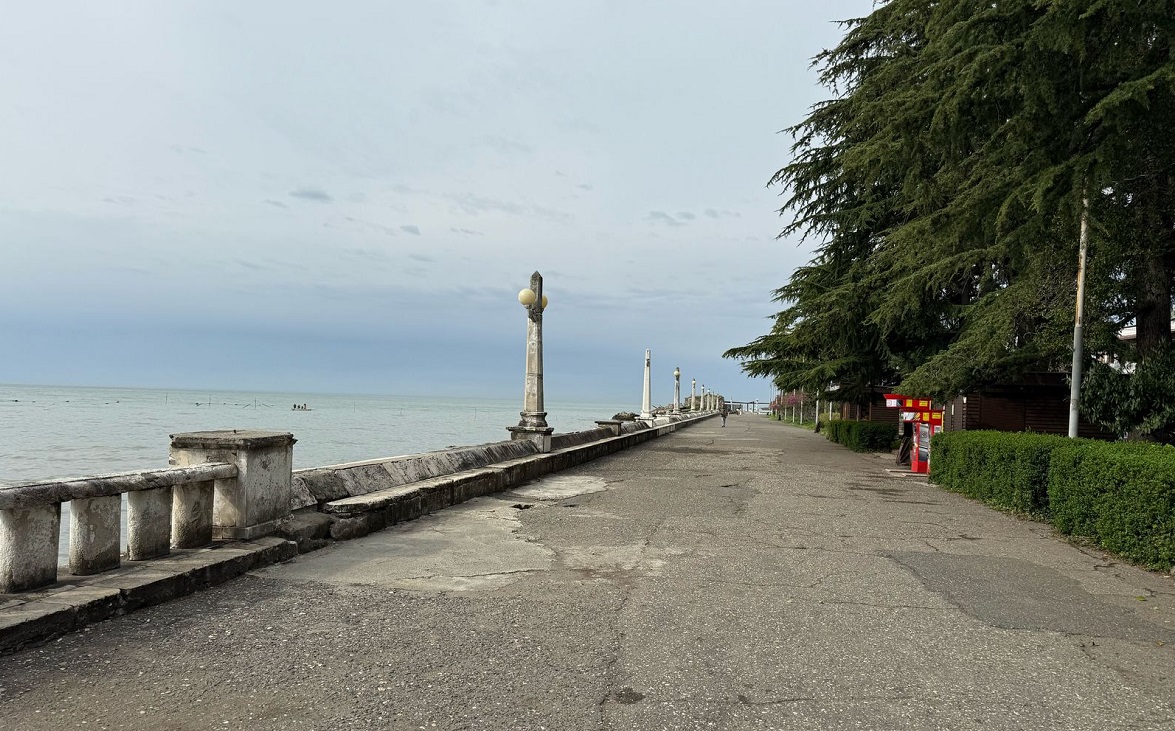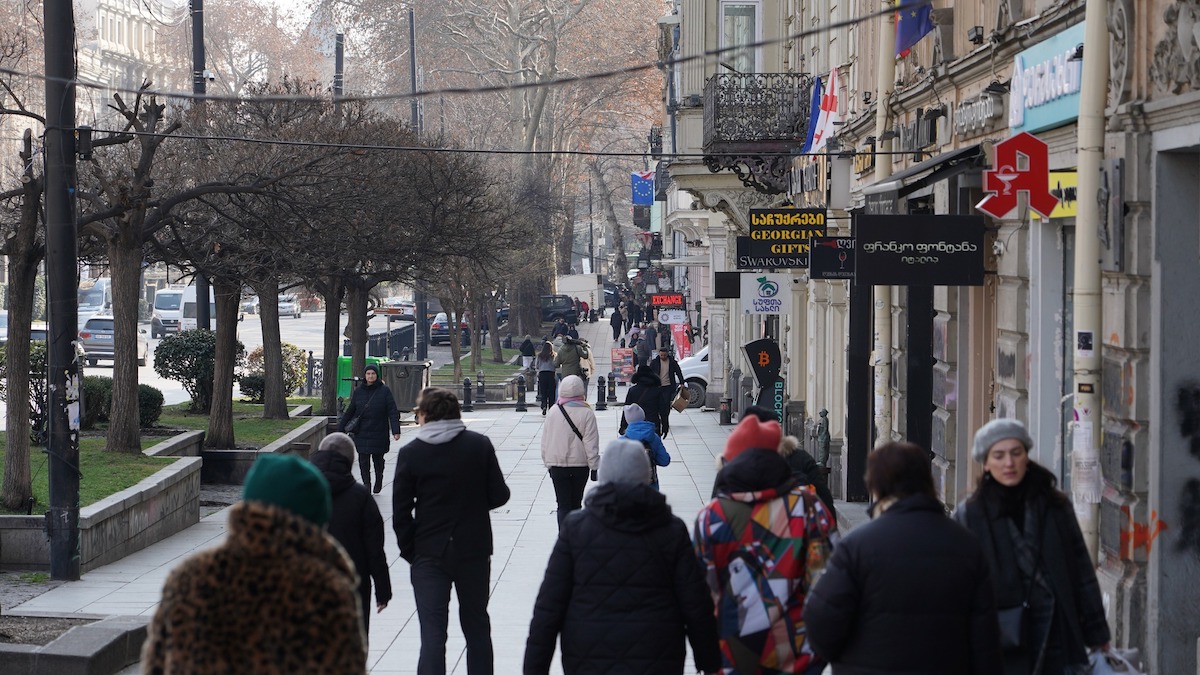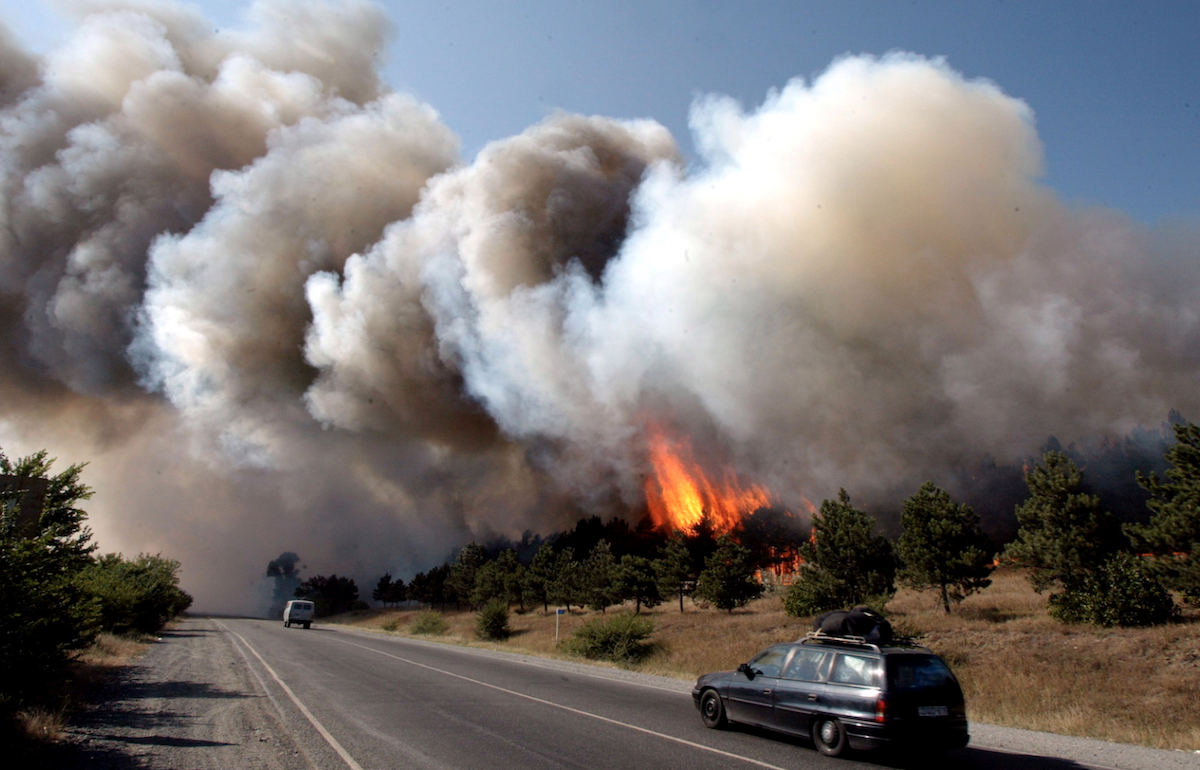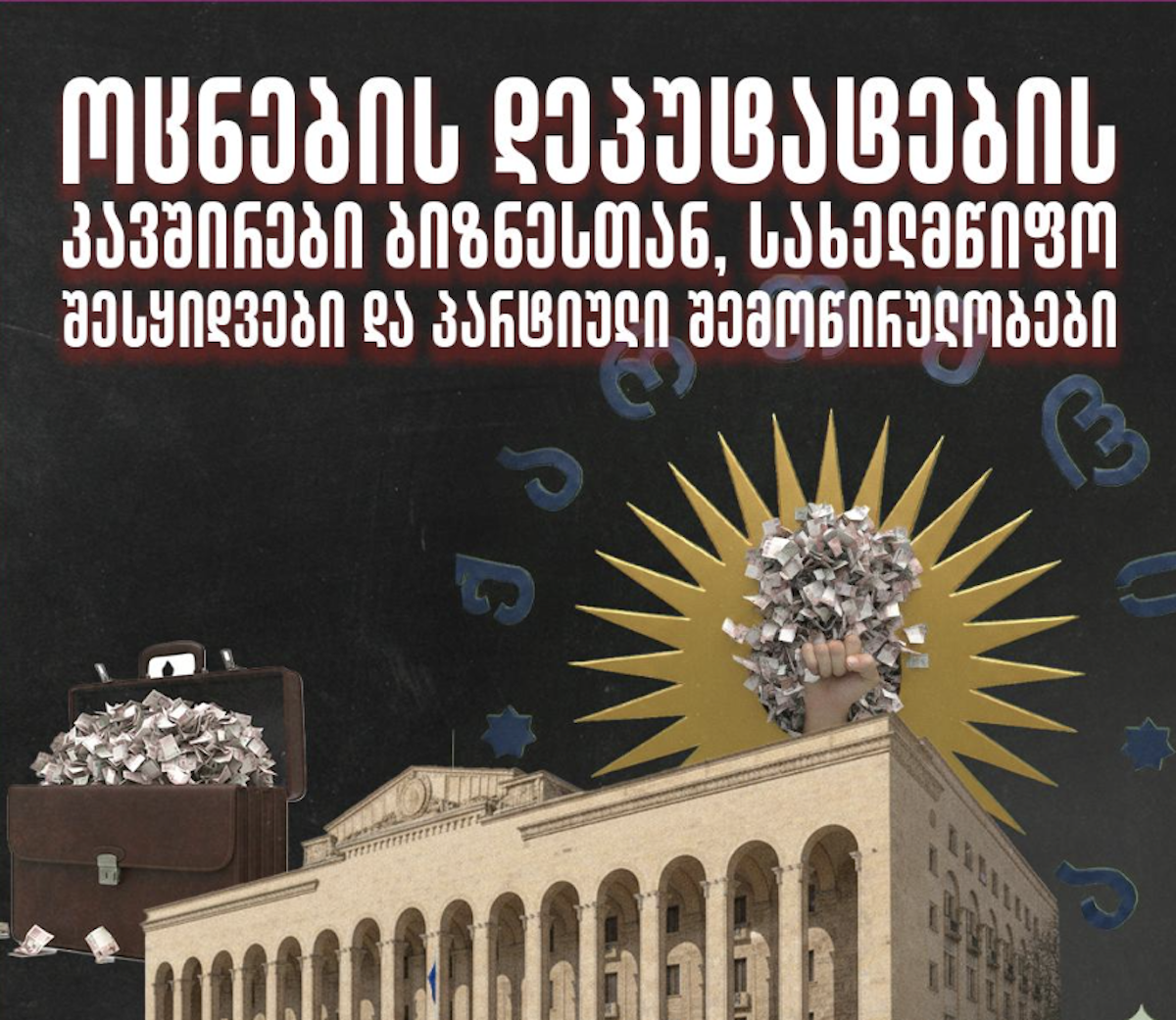Life on Baku-Sumgait-Baku trains
Baku-Sumgait-Baku high-speed train
07:10 am. Sumgait railway station. The weather is rainy and cold. Dozens of people stand on the narrow platform waiting for the train to Baku.

Most residents of the city, whose population is about 400,000, travel to Baku every day to work. In their own words, “half of Sumgait residents go to Baku to work, and the other half are looking for a job there. They are convinced that there are more employment opportunities in Baku.”
- Child allowance in Azerbaijan: why is it not paid?
- “It’s dangerous work, but it’s better than unemployment”. Cleaners on highways in Azerbaijan
- A trip to the “Alumni House,” whose address even Google Maps doesn’t know
Flow from Sumgayit to Baku in the morning and back in the evening
Modern high-speed five-car double-decker trains carry passengers daily between Baku and Sumgayit in two directions – Baku-Pirshaghi-Sumgayit and back, Baku-Khirdalan-Sumgayit and back. In the first direction, there are 21 trips from Sumgayit to Baku and 19 trips from Baku to Sumgayit; in the second direction, there are 9 trips from Sumgayit to Baku and 11 trips from Baku to Sumgayit. In the first direction the train reaches the destination point in about 55 minutes, and in the second direction – in 40 minutes. Why approximately? Because no matter how modern the trains are.
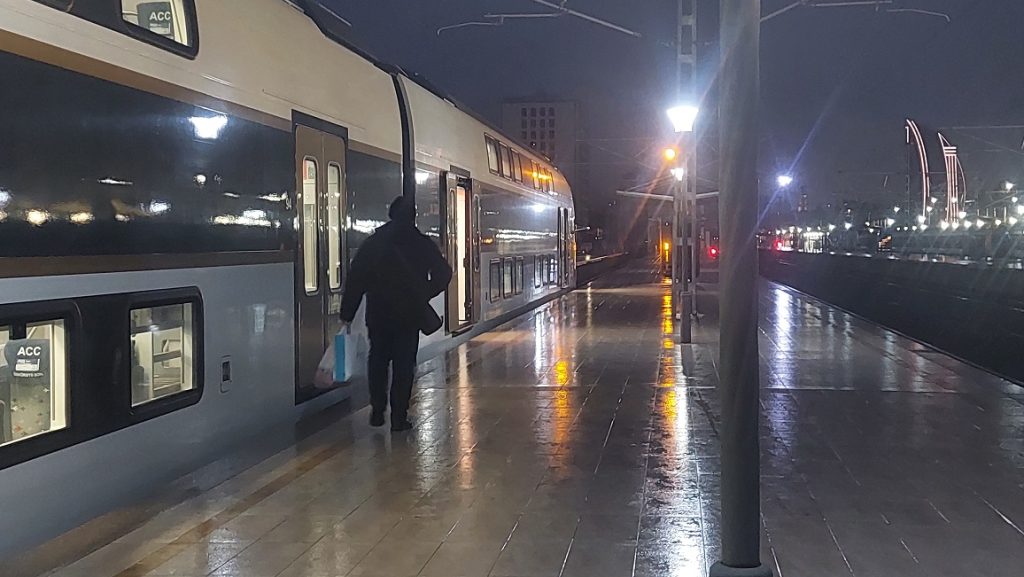
Morning trains from Sumgayit to Baku and evening trains from Baku to Sumgayit are overcrowded. Constant traffic jams on the Baku-Sumgait highway encourage people living and working between these two cities to use the train and forget about their own cars.
The fare on modern high-speed trains running between Baku and Sumgait is 1 manat [about $0.6]. Payment can be made by ADY (Azerbaijan Railways) card or any bank card. The fare is deducted from the passenger’s balance not at the station where they board the train, but when passing through the turnstile of the station where they gets off.
“We’re late again, this time they’ll kick us out.”
Most of the people standing on the platform, soaked to the bone from the rain, look tired, impatient and unhappy.
“They’ll kick us out this time for sure,” a tall young man says, looking at his watch, to a middle-aged man standing next to him.
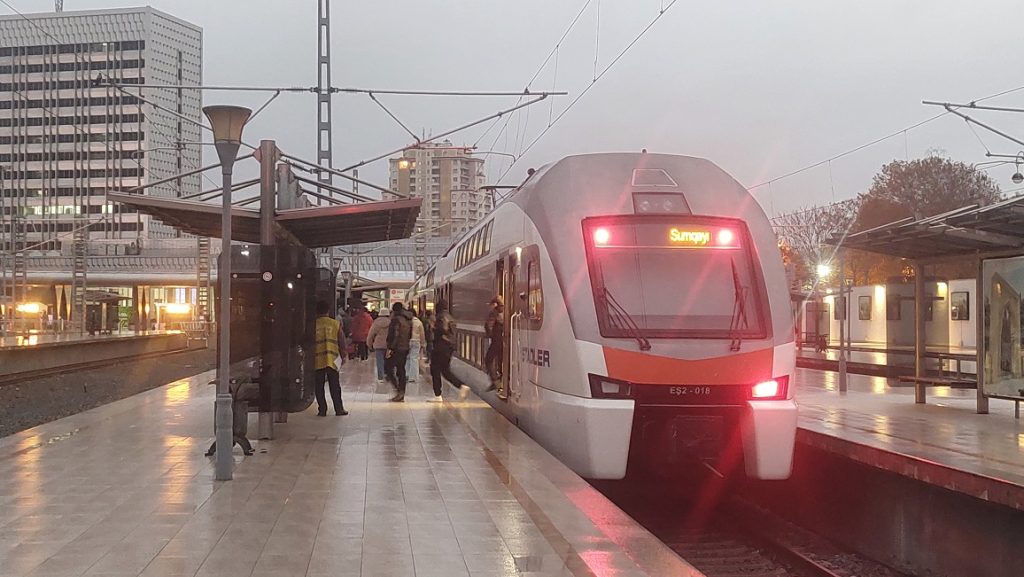
Two coworkers missed the previous train and will be late to work, not for the first time.
The voice announcing the approach of the Baku-Sumgait train to the platform is heard throughout the station. Everyone looks in the direction of the train. Since the train is visible from afar, they try to move forward to get ahead of each other and get into the carriage as early as possible.
“Let’s sit at the front of the train, then we’ll get there faster,” friends laugh at a teenager’s joke. Judging by the way the other passengers look at him, the boy’s joke was appreciated only by his friends.
When the train doors open, passengers literally push their way in.
The young man concerned about being late for work sits down on one of the window seats and makes room for his traveling companion walking behind him.
“I’m holding a seat for you,” he shouts to his friend.
“I have to move a sewing machine from Baku to Sumgait to sew a skirt in one day?!”
“I told her that I would not have time for tomorrow, I have other things to do. Do I have to bring a sewing machine from Baku to Sumgait to sew a skirt overnight? Let it wait for 24 hours, nothing will happen to it,” a middle-aged, full-figured woman sitting opposite me sends a voice message to someone on her phone.
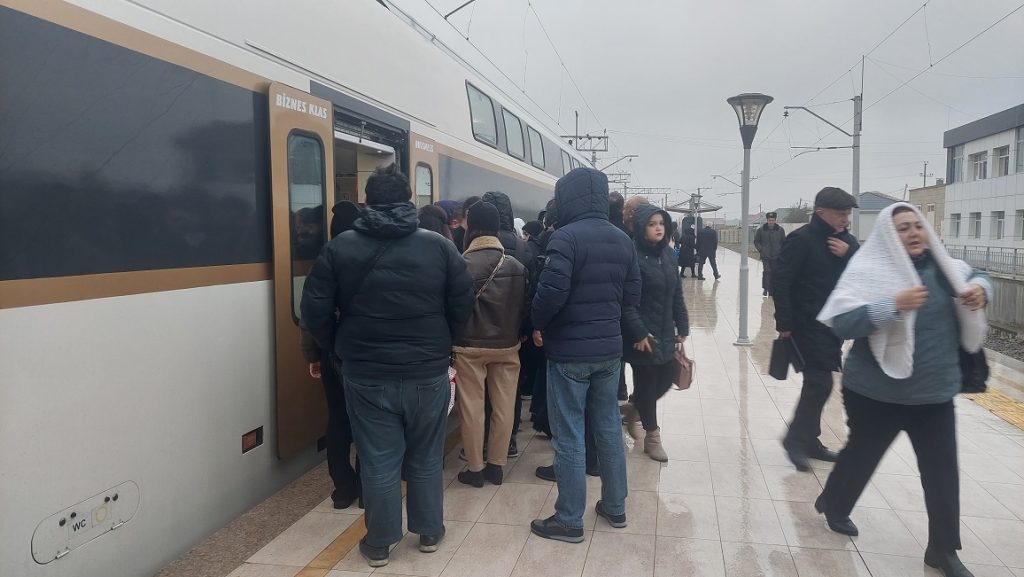
“Are you a dressmaker?” – I ask the first question that comes to mind.
“Yes. Someone ordered a skirt yesterday and I told her I couldn’t make it today. Now she’s complaining about me to my partner.”
“I used to have a small booth at the Velotrack on January 20, and an old Soviet sewing machine. For about 15-16 years I worked there. Then I moved with the machine closer to the center, now I work on the metro station “Nizami”. I have always traveled to and from work by train. Even when I worked at January 20. Everyone was surprised, saying, “Aren’t you lazy to take a train to the “May 28” metro station and return from there to “January 20”?! By bus directly from Sumgait to “January 20″ is closer, of course, but for me the train is comfort. Moreover, my house is not far from the Sumgait station,” she says and switches to her phone again.
Most people in the carriage are dozing, as if the fatigue of yesterday’s working day has not left them yet, they have not slept or rested.
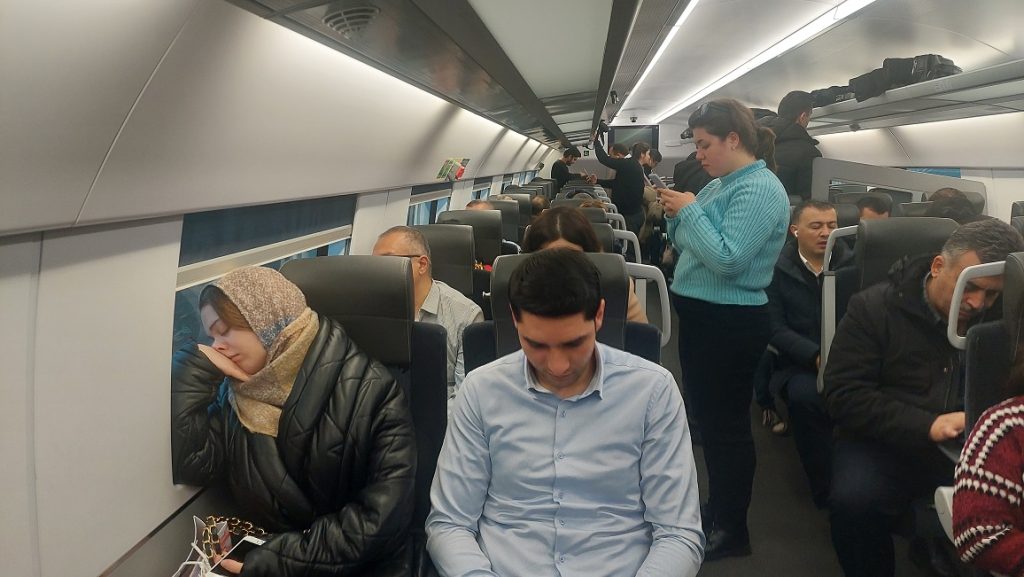
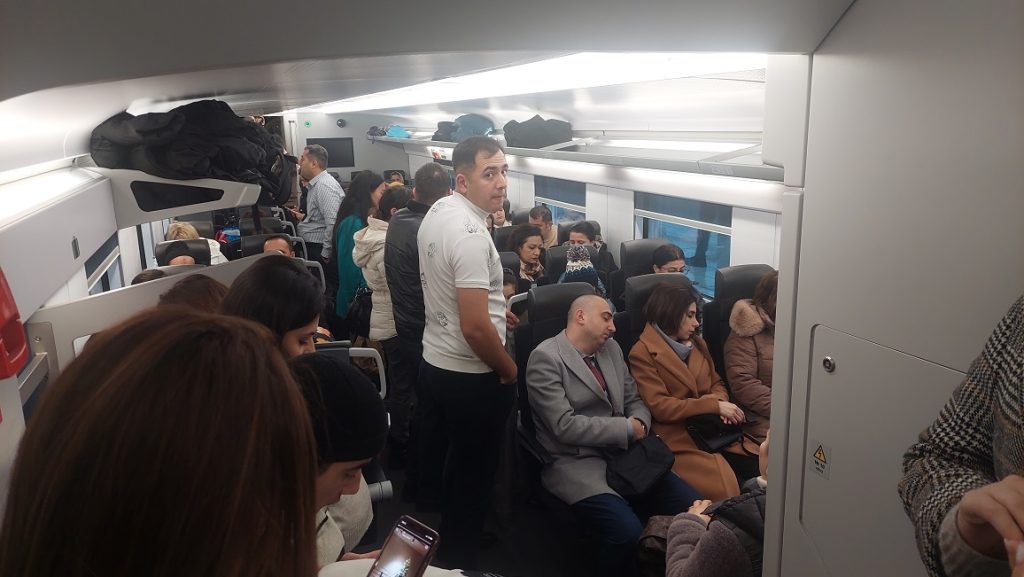
An elderly and very thin man falls asleep on his feet. The woman on whose shoulder he is leaning stands up and offers him a seat. The man nods as if to say “thank you very much,” and sits down.
“For four years I traveled to and from Baku University by train.”
“The train is approaching Khirdalan station,” the dispatcher’s voice intones.
When the train stops, almost half of the passengers get off, but those who board the train at this stop quickly fill their seats, and in excess.
A group of newly arrived students break the silence of the carriage. Young people joke and laugh amongst themselves. The teenager whose joke caused a negative reaction from those around him looks at them and smiles. It seems that he no longer feels lonely.
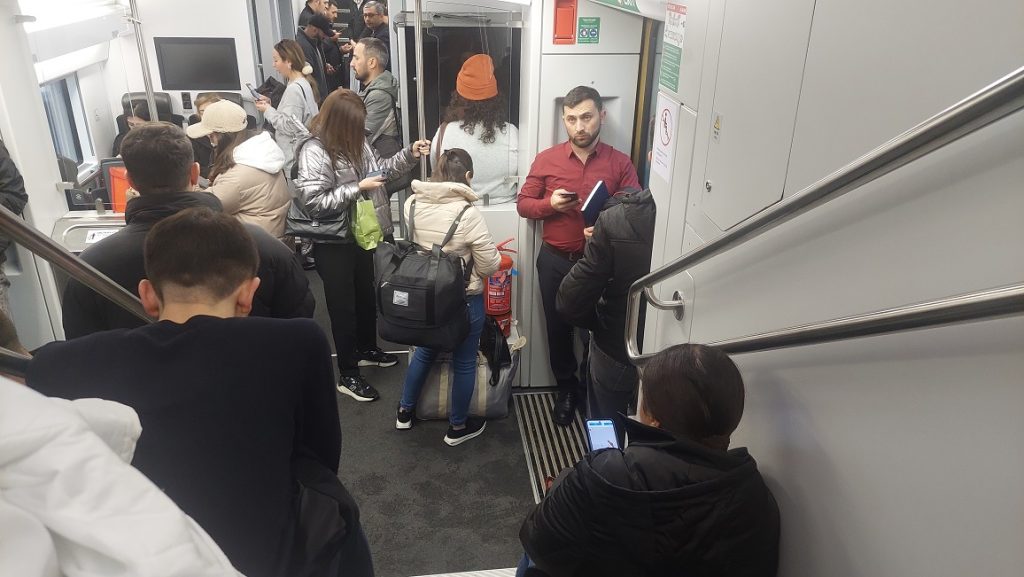
“When I was a student, I also traveled by train,” says the young woman sitting next to me, looking at these students. “For four years I traveled from Khirdalan to Baku State University. At that time the trains were not modern. I had to drop out of university in my last year. I studied on a paid basis, I could not pay for my studies. A friend got me a job in a cleaning company in Baku, and now I clean apartments on demand. Seven years have passed since then.”
In the car window one can see that the train is moving from Khirdalan to the “January 20” ring. The picture is familiar – hundreds of cars stuck in a traffic jam on the highway.
“This traffic jam is unlikely to clear up in the next few hours,” said a voice from the back of the carriage, and everyone seemed to agree.
We reached Baku, and now back to Sumgait
Suddenly the passengers become animated. Someone slowly gathers his things, someone puts on a jacket, zips up. The train is approaching Baku.
“The train is approaching Baku station,” – by the time the dispatcher’s voice is heard, the passengers had already gathered at the doors.
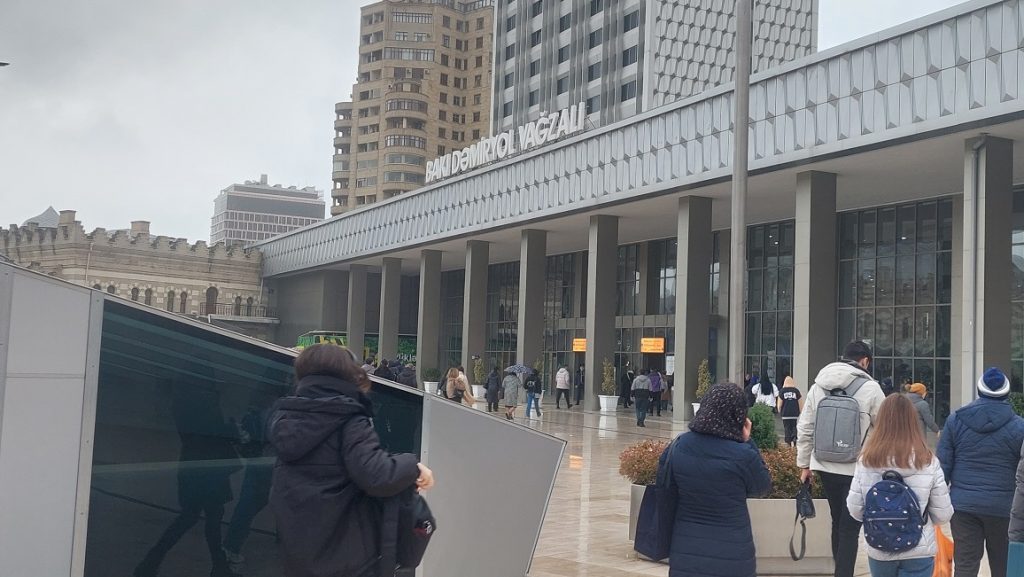
The calm reigning at the Baku railway station in the early morning is broken by a noisy flow of passengers getting off the Sumgait train.
From the waiting room of the Baku railway station, people waiting for this train come out to the platform. They hurriedly board the train and take seats in the cars. Although many people arrive in Baku from Sumgait in the morning, there are far fewer passengers traveling in the opposite direction. One of them is Ali, who has been working as a fitter at the Baku railway station for almost 20 years. He says that although he has been working here for a long time, he rarely travels by train himself. This morning he decided to go to Sumgait, to the car market.
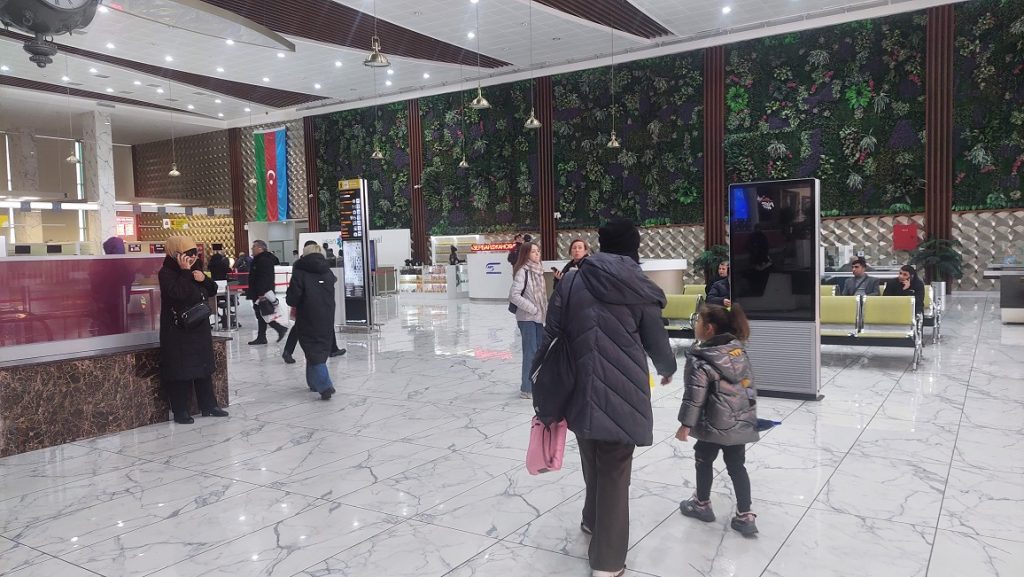
“It became a habit for me to listen to people’s complaints at this station. People were dissatisfied with the old age of the trains, the length of intervals and the overcrowding of the coaches. But as soon as the new double-decker high-speed trains appeared, the complaints subsided considerably. Probably, if the number of trains increases and the intervals shorten a bit more, then no one will complain anymore,” he says.
“These trains take people from home to work and from work to home.”
I board the train and walk through the cars one by one. After the crowd of passengers from Sumgait to Baku, the emptiness of the carriages is surprising. Apparently from the outside I looked like I was looking for something, so one of the female passengers stared at me intently. Not waiting for her to speak:
“Are there always so few people here?” – I asked.
“Soon more,” she replies, and turns to face the window.
I want to ask something else, but the dispatcher’s voice is heard throughout the train: “The train is approaching the Hirdalan station”.
At Hirdalan station, more passengers board the train. They occupy most of the empty seats, some even sit on the steps leading to the second floor of the train. But it is still not as crowded as on the Sumgait-Baku flight.
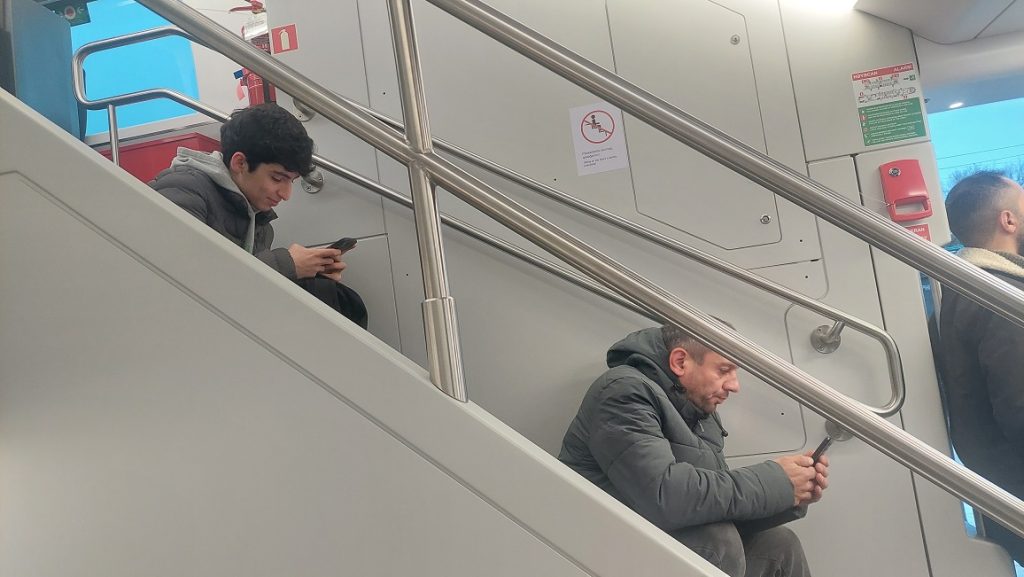
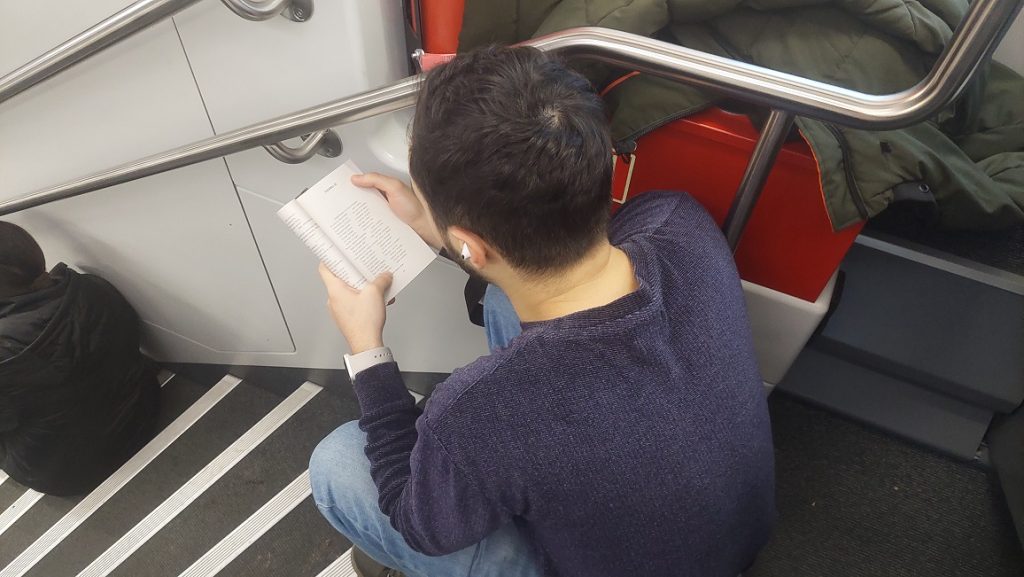
One of the passengers, Niyazi Ahmedov, is an overhead crane operator working at a construction site in Sumgait. Every morning he takes this train to be at work at 9 o’clock.
“In the mornings, due to traffic jams, I do not use “manat cabs” that depart from Khirdalan. So every morning I have to walk 15-20 minutes from my house to the train station.”
“People mostly take the train to and from work. That’s why the interval of the morning and evening trains is shorter than that of the daytime trains. As they say, these trains are designed to take people from home to work and from work to home. From home to work, from work to home.”
“She’s a purebred, doesn’t look like a stray dog, probably lost.”
“The train is approaching Sumgait railway station.”
As soon as the doors open, people who want to get off and those who want to get on are mixed with each other. No one wants to give way, everyone is literally pushing. The Sumgait station is still full of passengers rushing to work in Baku.

I’m heading towards the platform exit. Right in the middle of the station stands a purebred dog. He’s frozen in place, looking completely lost.
A cleaning lady sweeping the station says to me after seeing my interest in the dog:
“I think he’s lost. It follows people back and forth. It looks like a domestic dog, not a street dog.”
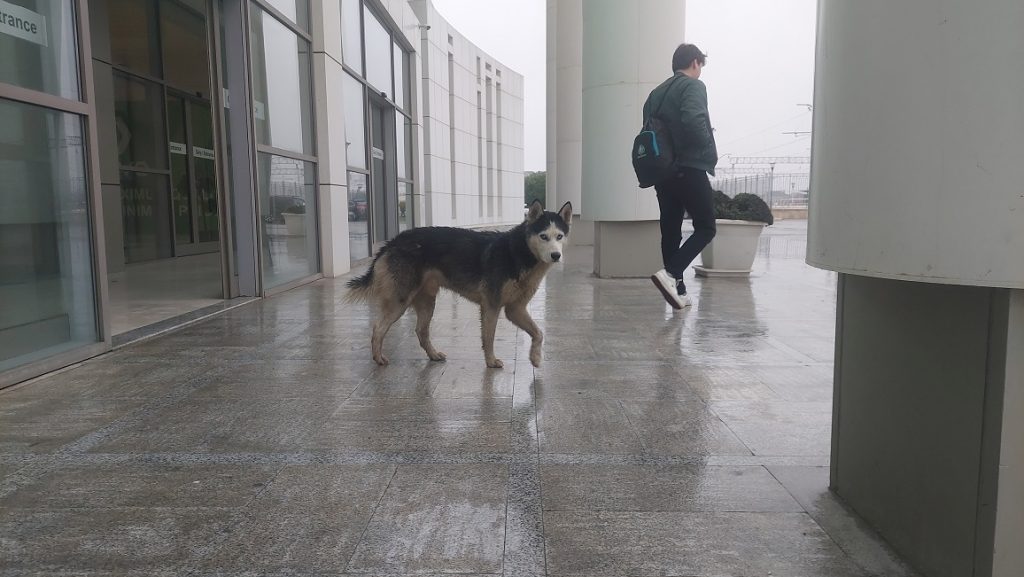
I move closer and stroke the dog’s head. The huge dog is shivering like a little puppy, either from fear or cold. We leave the station, me in front and the dog behind. We go to look for a store where we can buy dog food.
It’s getting lighter now. It’s still raining. I’ve finished my work. And the next Sumgait-Baku train sets off with another crowd of people working in the capital.











